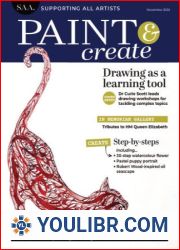
BOOKS - Managing Priorities: How to Create Better Plans and Make Smarter Decisions


US $9.61

681193

681193
Managing Priorities: How to Create Better Plans and Make Smarter Decisions
Author: Harry Max
Year: May 14, 2024
Format: PDF
File size: PDF 15 MB
Language: English
Year: May 14, 2024
Format: PDF
File size: PDF 15 MB
Language: English
and "Because time, attention, and resources are finite, wise prioritization lies at the heart of any flourishing organization or meaningful life. Yet there's surprisingly little actionable advice on how to do it well - and many seductive reasons to avoid it entirely. This approachable, psychologically astute, and deeply practical book has the potential to change all that. Reading it is well worth your time. and " - Oliver Burkeman, author of Four Thousand Time Management for MortalsManaging Priorities is your guide to prioritizing anything - anytimeand anywhere. Harry Max digs into the best practices for prioritization atApple, DreamWorks, NASA, Adobe, Google, Microsoft, and beyond, and brings themtogether in a single, practical method that you can apply step by step. Who Should Read This Book? Every business person who is even remotely interested in prioritization should read ManagingPriorities. Whatever you need to prioritize - tasks, goals, OKRs,projects - this book is for you. Specific chapters are dedicated to what needsto happen and when for individuals, teams, and whole organizations.TakeawaysLearn what prioritization is.Gain insight into the costs of not prioritizing intentionally.Explore different methods of prioritization, including the Eisenhower Matrix, the Analytic Hierarchy Process, the Max Priorities Pyramid, Paired Comparison, Stack Ranking, and more (highlighted in the Appendix).Apply the author's DEGAP(R) method of prioritization with its five Decide, Engage, Gather, Arrange, Prioritize.Identify, understand, and address your current state or lack of prioritization (the context of your problem, the people involved, and the issues surrounding timing).Use a scale to differentiate items to prioritize and arrange them appropriately.Select an approach to prioritization that works for your specific situation.














































